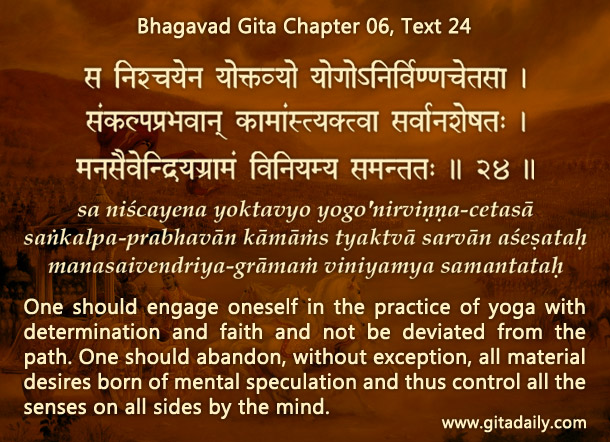
“Won’t spiritual discipline take away my freedom by forbidding the things I like?” This apprehension often checks prospective seekers on their spiritual quest.
The apprehension originates in a misapprehension of what actual freedom is. We generally think of freedom as the right to choose our actions based on our likes. This conception overlooks the discomforting possibility that what we like may well cost us our freedom. For example, a teenager may, based on ideas derived from the media, the campus and the overall materialistic culture, think of alcohol as likeable, and accordingly believe that the right to drink alcohol is freedom. But few years down the line when alcohol becomes an addiction, the so-called freedom will be exposed as the path to bondage.
Gita wisdom explains that we are souls who are meant for lasting and fulfilling happiness in spiritual love for Krishna. When we become infatuated with bodily pleasures and misconceive indulgence in them as freedom, that infatuation drags and traps our consciousness in matter, thereby making spiritual happiness inaccessible to us. Moreover, our attachment to matter sentences us to the inevitable miseries of material existence, thereby transmogrifying our presumed freedom into bondage.
By regulating our worldly indulgences and diligently practicing yoga, especially bhakti-yoga, for connecting with Krishna, we experience spiritual happiness. This experience as so rich and relishable that it gradually purifies our likings from sensual to spiritual.
The Bhagavad-gita ( 06.21 – 06.24) shares a thrilling description of samadhi, the state of spiritual perfection. The Gita (06.21) indicates that those purified by diligent yoga practice relish the ultimate joy – a joy that has no comparison or interruption (06.22) . And the Gita concludes this description by declaring (06.24) that the resulting freedom from all miseries is actual freedom.


Hare Krishna Prabhuji
PAMHO
Another wonderful explanation from Gita Wisdom.
Lord Sri Krishna has bestowed us with minute independence such that we are free to love Him or not. We sometimes misuse this minute independence and tend to enjoy separately from Him; the more we do this the more we get entangled within the clutches of maya.
The choice is ours – either we fall into maya’s traps and become slaves of our own senses or we become faithful servants of the Lord and His devotees and thereby relish loving reciprocations.
Hari Bol
Narottama das